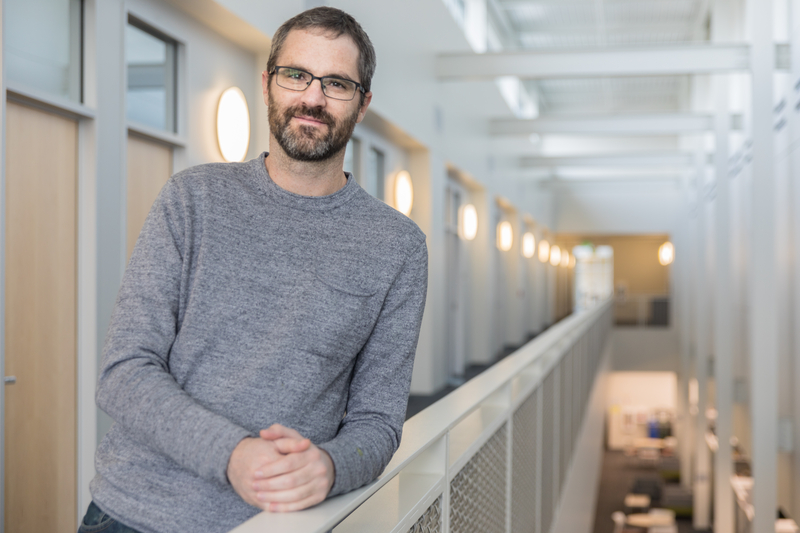
The Ph.D. program in Economics at UC Merced prepare students to answer real-world questions, using frontier economic methods and insights from multiple disciplines. We emphasize rigorous quantitative training, novel data sources and an expansive view of economic theory. These emphases are embodied by a vibrant faculty actively conducting research in a variety of applied microeconomics areas, including development, migration, labor, innovation, health, environment, international trade, culture and experimental economics. The program stresses applied microeconomic studies broadly, using tools of an Economics discipline occupied with the study of human behavior, markets, and the allocation of scarce resources. It will focus precisely on the applied economics fields that reflect the research priorities of department faculty, taking advantage of our unique interdisciplinary opportunities to advance training and research in high demand fields in economics, business, and government. The program stresses state of the art quantitative methods used to address contemporary economic phenomena affecting individuals, groups and governments. The program is designed to prepare students for research careers in both the academic and non-academic labor markets.
Our goal is to establish a premier graduate program in Economics focused on a modern approach to economic science. Paul Krugman, an Economics Nobel Laureate, writes that old world Economics exalted “mathematical prowess…and…turned a blind eye to the limitations of human rationality…to the problems of institutions that run amok; to the imperfections of markets…and to the dangers created when regulators don’t believe in regulation.”[1] A modern approach to the study of economics means facing the challenges posed by Krugman and applying the tools of economics to address real world problems. Operationalizing this theme requires researchers to use economic theory and modeling to address observed problems that advance our understanding of human behavior, processes that drive economic outcomes in families, schools, the workplace, markets, and the social fabric, and in doing so, address the role of organization design and public policy.
To achieve our goal of developing a world-class graduate program focused on real world economics we focus on fields of study in applied micro-economics reflective of both our faculty research priorities and strengths and their interaction with strengths in other fields of study at UC Merced. The former notably include the economics of labor markets, migration, international trade and development, health, environment, innovation, education, the behavior of individuals and groups generally, and the appropriate design and role of policy, all with emphasis on quantitative rigor and methods, both statistical and experimental. These foci both leverage existing faculty resources and strengths; differentiate our program from others; provide our graduates with the necessary theoretical and quantitative skills to excel in the study of contemporary economic issues and policy. All these design choices will ultimately enable us to achieve national and international prominence in our chosen focus areas.
The Ph.D. coursework includes a core program with a two-semester sequence in microeconomic theory; a three-semester sequence in statistics, econometrics and applied econometrics; economic history and macroeconomics breadth courses; and a research methods and preparation course. After the first year, students are required to pass a comprehensive written Preliminary exam on quantitative methods. The second year of the program is primarily occupied by a four-course field requirement fulfilled primarily by advanced economics field courses offered by the department’s faculty, including courses on international trade and migration, economic development, experimental economics, environmental economics, and labor economics, among others. Field classes will be combined to achieve tailored areas of concentration for Ph.D. students, and will in some cases include integrated fields that are delivered in combination with courses in other social science disciplines at UC Merced.
While students will be spurred to research from day one in the program, including research paper requirements in each Ph.D. year and research emphasis in field courses, the ultimate required research product is the dissertation, which represents the student’s original contribution to the economics literature and will typically contain three distinct publishable-quality papers. Our overriding goal in the Ph.D. program, as reflected in relatively small enrollment targets, is to emphasize in-depth research involvement and close mentoring by faculty to promote excellence in preparation for the academic workplace.
The M.A. in Economics is not intended as a stand-alone degree, but rather as an option for students admitted to the Ph.D. program. The optional M.A. serves as recognition of advancement in the degree program, though it is not a prerequisite for advancement. Ph.D. students will have the option to obtain the M.A. degree, either in route to a Ph.D. degree (non-terminal), or in lieu of a Ph.D. degree (terminal) if a student exits the graduate program prior to fulfilling the Ph.D. requirements. The recipient of an M.A. degree is understood to possess knowledge of a broad field of learning that extends well beyond that attained at the undergraduate level, but is not expected to have made a significant original and novel contribution to knowledge in Economics or to be able to use sophisticated methodological tools to conduct independent research. This structure is typical for Economics Ph.D. programs around the country. We anticipate that terminal M.A. graduates will be well prepared for quantitative careers in government and the private sector, where demand for the quantitative skills and training delivered is large.
[1] Krugman, Paul “How Did Economists Get It So Wrong?” New York Times, September 2 2009, http://www.nytimes.com/2009/09/06/magazine/06Economic-t.html?_r=0



